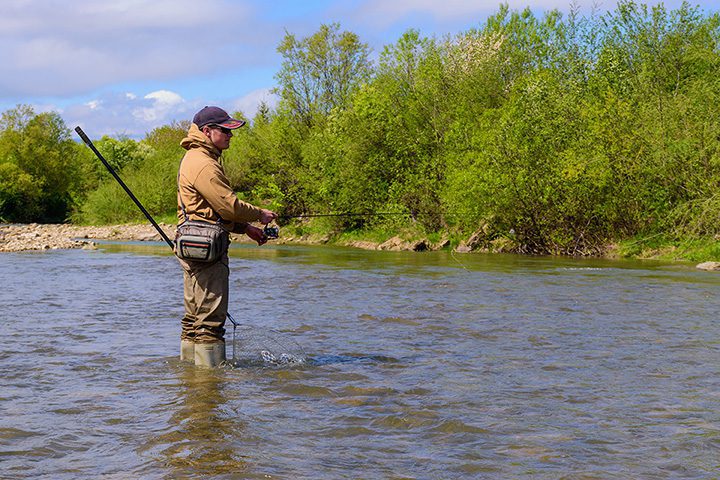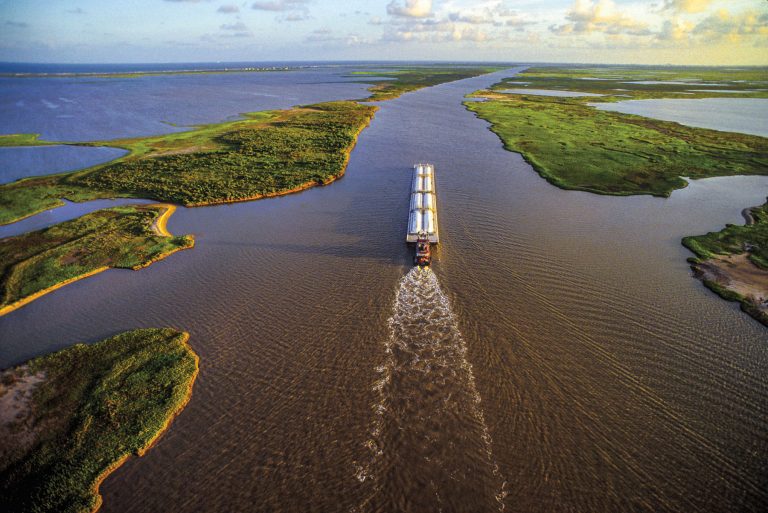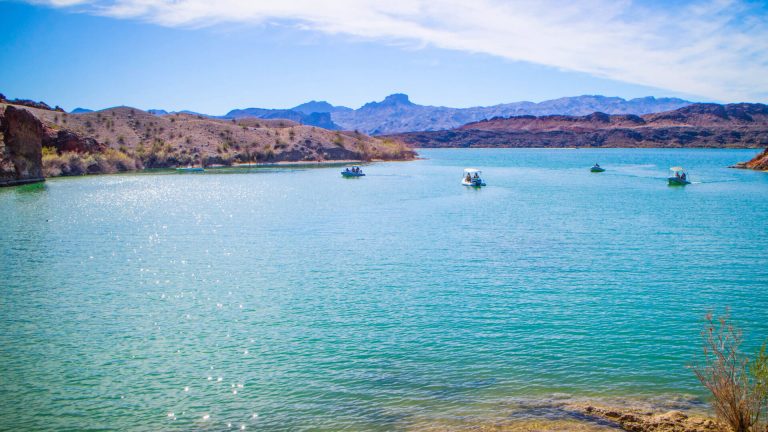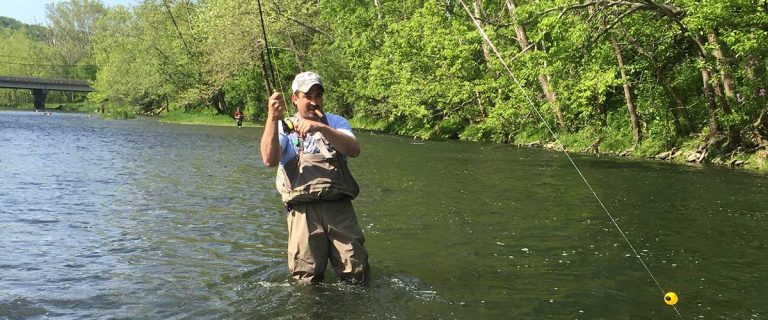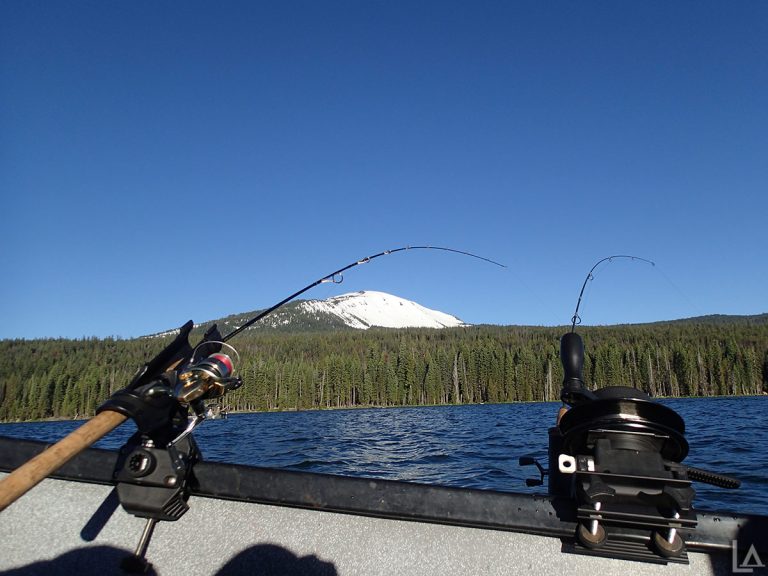Are you ready to embark on an unforgettable fishing adventure in the Ocean State? Rhode Island, known for its stunning coastlines and rich aquatic life, offers some of the best freshwater fishing experiences in the United States. Whether you’re a seasoned angler or a novice looking to cast your first line, this comprehensive guide will provide you with everything you need to know about freshwater fishing in Rhode Island. From the top fishing spots to essential regulations and tips, we’ve got you covered.
Why Rhode Island is a Fishing Paradise
Rhode Island, often referred to as the “Ocean State,” is not just about saltwater fishing. Its freshwater bodies are teeming with a variety of fish species, making it a prime destination for anglers. The state’s commitment to maintaining and enhancing its freshwater fisheries ensures that both residents and visitors can enjoy a high-quality fishing experience year-round.
The Diversity of Fish Species
Rhode Island’s freshwater ecosystems support a diverse range of fish species, including:
- Trout: Rainbow, brown, and brook trout are popular catches.
- Bass: Largemouth and smallmouth bass can be found in many ponds and lakes.
- Panfish: Species such as bluegill and black crappie are abundant.
- Others: Chain pickerel, carp, and northern pike are also present in various waters.
This diversity makes Rhode Island an attractive destination for anglers of all skill levels.
Conservation Efforts
The Rhode Island Department of Environmental Management (DEM) plays a crucial role in conserving fish populations and their habitats. Regular stocking programs, habitat enhancement projects, and strict regulations help maintain healthy fish populations, ensuring sustainable fishing for future generations.
Top Freshwater Fishing Spots in Rhode Island
Rhode Island boasts numerous freshwater fishing locations, each offering unique experiences. Below are some of the top spots to consider for your fishing adventure.
1. Watchaug Pond
Located next to Burlingame State Park in Westerly, Watchaug Pond spans over 570 acres and is one of the most fertile fisheries in Rhode Island. This spot is ideal for catching:
- Largemouth bass
- Black crappie
- Yellow perch
- Chain pickerel
Amenities: Watchaug Pond features boat ramps, ample parking, and nearby camping facilities at Burlingame State Park, making it a convenient choice for a day of fishing.
2. Olney Pond
Just a few miles from Central Falls, Olney Pond, also known as Lincoln Woods State Park Pond, is renowned for its diverse fish population, including:
- Pickerel
- Largemouth bass
- Rainbow trout
- Brown trout
- Bluegill
Amenities: The serene atmosphere and beautiful scenery make it a perfect spot for a relaxing fishing trip. The pond also features boat ramps and picnic areas, enhancing the overall experience.
3. Stafford Pond
This 480-acre reservoir in Tiverton is stocked with trout several times a year, making it one of the largest fisheries in the state. The broad and open waters, along with a few large coves at the north end, provide diverse fishing opportunities.
Amenities: Stafford Pond is equipped with a boat ramp and parking lot, and the nearby town offers additional amenities.
4. Haines Memorial State Park
A favorite among locals, Haines Memorial State Park offers picturesque views and a variety of amenities, including boat ramps and picnic tables. While primarily known for saltwater fishing, it also provides excellent freshwater fishing opportunities.
5. Wyoming Pond
Also known as the Wyoming Den, this tranquil spot near Richmond is stocked with trout multiple times a year. Anglers can also find bass, carp, crappie, and northern pike here.
Access: While it may not be the best spot for larger boats, it offers a peaceful fishing experience with two access points, one of which has a small boat ramp.
6. Echo Lake
Although smaller than other locations, Echo Lake is a fantastic spot for catching various types of bass. The Echo Lake Campground offers a boat ramp for easy access to the water, making it a family-friendly destination.
7. Beavertail State Park
Located along the coast, Beavertail State Park is a scenic and busy saltwater fishing spot. Anglers can fish from the rocky shore for striped bass or venture out on a boat for bluefish and blackfish.
8. Brenton Cove
Nestled within Brenton Point State Park, Brenton Cove is a family-friendly fishing spot rich with black sea bass and striped bass. While it can get busy, the amenities available make it a popular choice.
Essential Fishing Regulations
To ensure a sustainable and enjoyable fishing experience, it’s crucial to adhere to Rhode Island’s fishing regulations. Here are some key points to keep in mind:
| Regulation | Details |
|---|---|
| Licensing | All anglers aged 16 and above must have a valid Rhode Island fishing license. |
| Seasonal Restrictions | Specific fish species have designated open seasons. For example, trout fishing opens on the second Saturday in April. |
| Catch Limits | Daily catch limits vary by species. Always check the latest regulations for specific limits. |
| Fishing Methods | Some areas may restrict fishing methods, such as fly fishing only or catch-and-release zones. |
Licensing Information
Obtaining a fishing license in Rhode Island is straightforward. Here are the types of licenses available:
| License Type | Fee (Online) | Fee (Vendor) |
|---|---|---|
| Resident Freshwater Fishing License | $21.00 | $23.00 |
| Non-Resident Freshwater Fishing License | $38.00 | $41.00 |
| 3-Day Tourist Freshwater Fishing License | $18.00 | $21.00 |
| Resident Trout Conservation Stamp | $5.50 | $6.00 |
Conservation Stamps
Certain species, such as trout, require additional endorsements:
- Trout Conservation Stamp: Necessary to keep or possess trout or to fish in catch-and-release or fly-fishing-only areas.
Funds from these licenses and stamps support habitat protection, fish stocking, and research, contributing to the sustainability of Rhode Island’s freshwater ecosystems.
Tips for a Successful Fishing Trip
To make the most of your fishing adventure in Rhode Island, consider these tips:
Research Your Spot
Each fishing location has its unique characteristics and fish species. Researching beforehand can help you choose the right bait and tackle.
Check the Weather
Weather conditions can significantly impact fishing success. Overcast days are often ideal for fishing, as fish are more likely to be active.
Pack Essentials
Ensure you have all necessary gear, including your fishing license, appropriate bait, tackle, and safety equipment. Don’t forget essentials like sunscreen, water, and snacks.
Respect the Environment
Practice catch-and-release when necessary and always clean up after yourself to preserve the natural beauty of Rhode Island’s fishing spots.
Conclusion
Rhode Island’s freshwater fishing opportunities are abundant and diverse, offering something for every angler. By following the regulations, choosing the right spots, and preparing adequately, you can enjoy a rewarding and memorable fishing experience in the Ocean State. So grab your gear, get your license, and head out to explore the fantastic freshwater fishing that Rhode Island has to offer.
Additional Resources
For more information on fishing regulations, licensing, and conservation efforts in Rhode Island, visit the following official websites:
Do I need a fishing license to fish in Rhode Island?
Yes, most anglers aged 15 and older are required to obtain a valid fishing license from the Department of Environmental Management.
Where can I purchase a fishing license in Rhode Island?
Fishing licenses can be purchased online through the DEM website, at authorized agents across the state, or by mail.
Are there any free fishing days in Rhode Island?
Yes, Rhode Island typically offers free fishing days on the first full weekend in May and on National Fishing and Boating Day in June.
What are the daily catch limits for freshwater fish in Rhode Island?
Daily catch limits vary by species and waterway; always consult the current Rhode Island Freshwater Fishing Guide for the most up-to-date regulations.
Can I use live bait while fishing in Rhode Island?
In most cases, yes, but some waterways may have specific bait restrictions to protect native species. Always check local regulations before using live bait.



